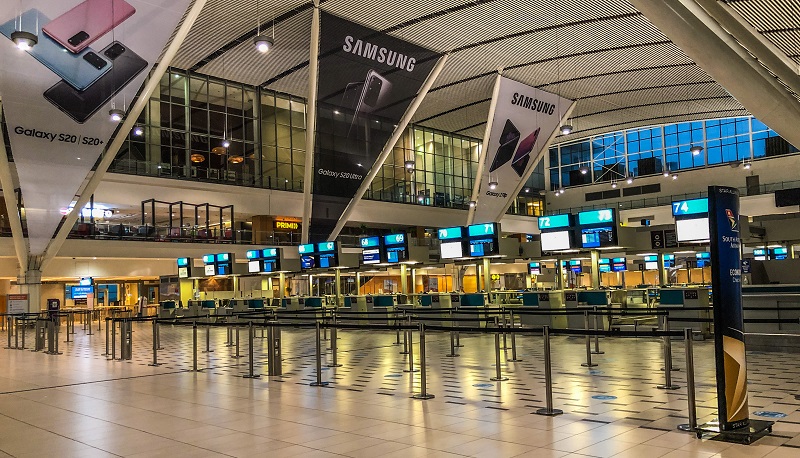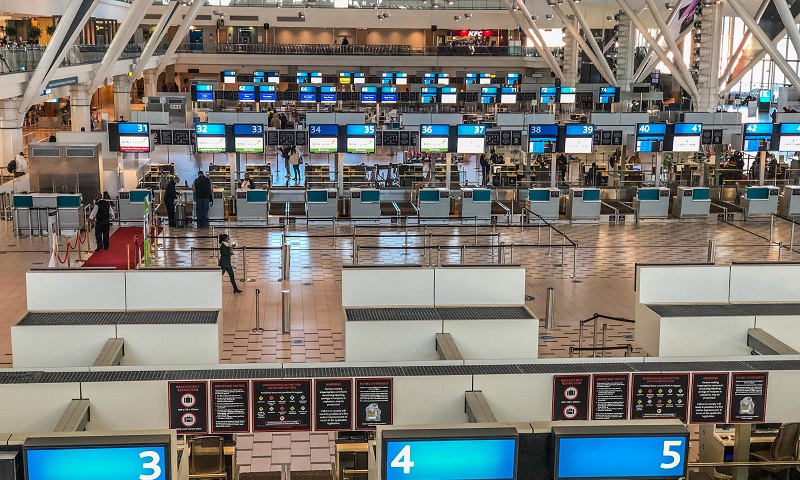How Cape Town International is Creating a Safe Environment For Travellers
2 June 2021
Passengers arriving at Cape Town International Airport can be assured of a world-class experience in a safe environment, says the man at the helm of Africa’s leading airport.
Mark Maclean, the acting general manager at Cape Town International Airport, is no stranger to the aviation industry. A certified engineer, Maclean has been with the Airports Company South Africa (ACSA) for close to 15 years. In this time, he occupied several senior positions including head of engineering, head of operations, assistant general manager and now acting general manager of Africa’s foremost airport.
Anticipating renewed growth
Maclean took up the reins from Deon Cloete, who retired in February after 12 years as general manager. He acknowledges that while stepping into the new role in the midst of a global pandemic was challenging, it also held enormous opportunity.
“It’s not normal times. We’ve seen businesses close and colleagues leave, but we’ve also seen signs of renewed growth,” says Maclean. “More than 60% of our domestic travellers have returned. Our international numbers, however, remain constrained and that’s really where we want to focus.
“Our international volumes are dependent on COVID-19 regulations enforced across the world. There’s little we can do about that, but we are doing everything we can to make sure that we prepare for the return of international carriers. At the same time, it’s about getting the team through this challenging time – supporting the business and making sure that we do everything to prepare for the renewed growth at our airport.”
International carriers eager to return
Nine airline carriers are currently operating from Cape Town International, with nine more committing to restart operations soon.
Prior to the pandemic, Cape Town Air Access – a public-private partnership between the City of Cape Town, Western Cape Government, Cape Town Tourism, Wesgro, South African Tourism, ACSA and other private sector partners – established 19 new routes and 23 route expansions from Cape Town, adding 1.5 million seats with a direct tourism spend of some ZAR6bn.
“International carriers want to return to Cape Town,” says Maclean. “They are just waiting for the relaxation of restrictions in their own countries so that there are passenger volumes. There are encouraging signs, but again, we are dependent on a few things, particularly the rate of rollout of the vaccine – not only in South Africa but across the world. The way in which the vaccination programme is accelerating is encouraging for us and the travel industry at large.
Creating a safe environment for travellers
For now, Maclean says his team is focusing on passenger health and safety protocols to ensure that travellers are welcomed and processed safely.
“Firstly, we have to comply with the regulations – not only local regulations, but also international best practice,” says Maclean. “I’m proud to announce that we’ve received the Airports Council International (ACI) health accreditation, which recognises that we comply with world-class health standards in terms of how we process and deal with our passengers.”
Bio-security protocols include automated temperature screening, hand sanitising and adherence to social distancing. Wearing of masks is compulsory.
“International travellers are also required to have a polymerase chain reaction (PCR) test, which is no older than 72 hours from the time of departure. If you don’t have a PCR certificate, you can get an antigen test done on arrival at the airport, and if you’re clear, you are allowed into the country,” says Maclean.
Cape Town remains a choice destination
In a message to travellers considering a trip to Cape Town, Maclean says: “Be assured that we maintain the strictest level of compliance to all COVID-19 protocols.”
“The wonderful opportunity Cape Town offers is that it has so many outdoor-type activities. It is the one place where social distancing is very possible. Because of that, we believe international travellers will continue to view Cape Town as a preferred destination.”

